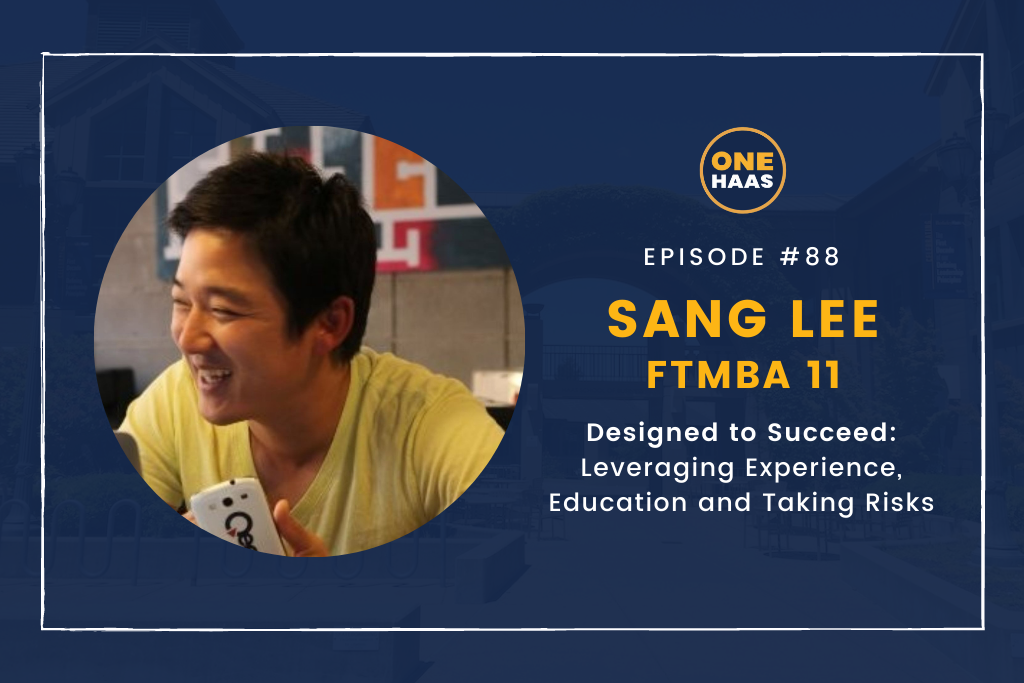Qeexo‘s first product, FingerSense, has been one of Huawei’s top features since 2015. Their technology has sold more than 400 million units to date. Amidst this success, Sang Lee, an FTMBA 11 alumnus, continues to pivot and find new solutions in machine learning.
The team is currently working on a Tiny ML solution. An area of the AI machine learning industry that focuses on creating machine learning solutions that fit into a tiny microcontroller or hardware with reasonably low computing power. These are all being done in three different locations: Pittsburgh, Beijing, and Shanghai.
What led to his success? What enabled Lee to take the brave step of starting his technology company? In case you missed the podcast episode, we’re sharing some key takeaways and leadership lessons we picked up from our guest.
Experiential Learning
Lee understood that experience is the best teacher. The moment he finished his undergraduate degree, he knew he wanted to pursue something else. He took a job at Samsung right after graduation, while his classmates pursued graduate studies.
He eventually discovered product planning, where he was able to take on a role that required business acumen as well as engineering experience. He realized at this time that gaining experience is as important as learning from them.
“I think building confidence through experience is crucial. Once you’re experienced, you know that some things are not really that big of a deal. And it’s not that difficult to work with an engineer, even if you don’t have an engineering background. It’s overcoming that fear, and I think that requires experience.”
Learning and Development are Never Over
As a product planner, he recognized that one of his most important responsibilities was to understand the market’s needs. It became evident to him that those with MBAs and business degrees have a different perspective than those with solid engineering backgrounds. It was because of this experience that he pursued an MBA.
“Then you get to question all the decisions that you make. Are those people making those decisions because they got that education from school? Or, have they learned something different from school that I never learned. You always have this question about your own decision. And, you know, I hated that.”
The desire to study never left him, even after he joined SK Telecom. Over the course of one and a half years, he planned his move to the United States to study business. Leaving a stable job at a prestigious company was a considerable risk, but Lee took it, knowing he needed the training to succeed.
Success Requires Humility
When Lee graduated with his MBA, he knew he wanted to build a company. But he wasn’t ignoring the fact that the things he learned from Haas would be more useful if he gained more experience. He knew he did not have the right set-up, the right capabilities, or the right business idea. So, he decided to join HTC.
He met his co-founder, Chris Harrison while scouting and sourcing new technologies for a project. After Chris and Lee started commercializing their product in 2015, Huawei teamed up with them to distribute it.
At this point, Lee learned the importance of scaling and automation. Huawei told his team they needed to create 60 more models after completing their first model, which took them almost two months to build. As one of his teammates pointed out, if they keep returning to China every two months, they’ll never be able to scale. During the process of finding a way to make the work more efficient, his team suggested they develop an automated platform to collect data.
The attitude Lee exhibited towards his team’s suggestion allowed them to pivot into new and unexplored areas of machine learning.
“For context, we’re a small start-up, and we were just living in China for months at a time. Then coming back, just to kind of relax and recharge, right? So, we worked on building an automated platform. Since that day, we’ve been supporting Huawei along the way and building an automated platform. We were able to launch 60 models without having anybody travel to China because everything is already automated.”
Finding Star Players and Letting Them Shine on Their Own
Lee attributes his success to the team he built. As a start-up founder, he used to do things himself but eventually learned delegation was necessary so that he could focus on the big picture.
“You know, when I was starting the company, I thought my role was going to be product management and sales, and maybe strategy. But when we started, we already knew what product that we wanted to launch. So, there was no strategy work that I needed to do. I just needed to make sure that our engineers are building the things that we can launch. But as time went by, as we grew, I started to learn about a CEO’s role. To make this business successful, I learned that I’m not a star talent in all the roles.”
A final piece of advice? Prioritize Your Well-being
Lee advises CEOs to take care of their well-being. It may be your responsibility to look toward your company’s future, but eventually, the stress of running a business will get to you. Communities and support systems are essential, he said. Lee emphasizes the need to seek help when necessary. A trip to the spa occasionally wouldn’t hurt either!
Listen to the full episode at Sang Lee, FTMBA 11 – Driving Progress Through Machine Learning Solutions, or check out other alumni stories at OneHaas Alumni Podcast.

